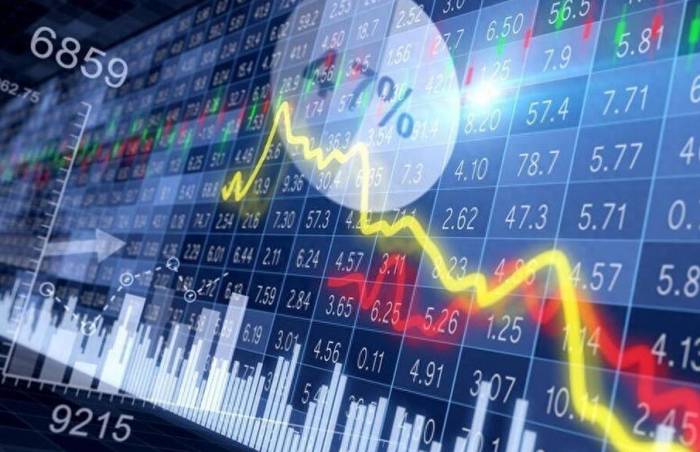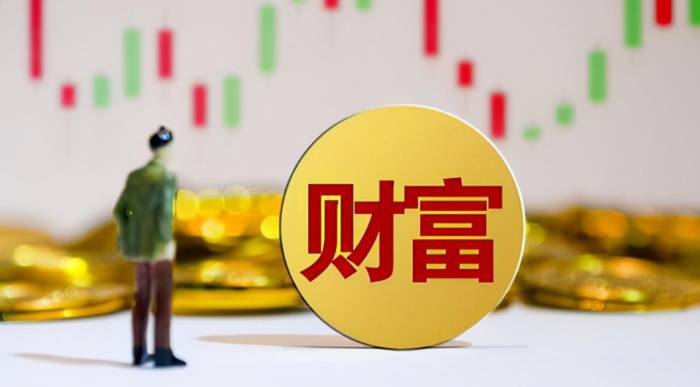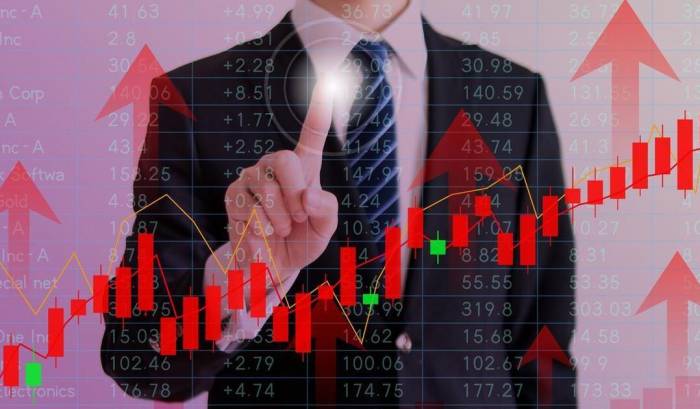I asked the AI, "Will there be a bull market in the A-share market this year?"
AI replied: "I'm sorry, as an AI, I do not have the capability to predict future stock market trends. I cannot provide a definite response to this question."
In fact, no one has the ability to predict the future of the stock market.
I asked the AI again, "Will China's economy be good this year?"
AI replied: "I apologize, as an AI, I cannot track and analyze real-time economic data, so I cannot give a definite answer to this question."
I think the AI is also quite evasive, with ambiguous responses.
In fact, we don't need to worry and predict too much, because in this world, many professional investment institutions, as well as various economists, are also predicting the economy and the stock market.
Predicting the economy is actually relatively simple, because the annual GDP growth data and forecast data do not have a large deviation.
However, stock market predictions are basically wrong, because the uncertainty of the stock market is very large and is affected by various factors.
For example, the recent situation in the Middle East has had a significant impact on the entire stock market.The impact in question is not necessarily about the rise or fall of stock prices, but rather the cautious behavior of capital in an uncertain market.
In the past two years, looking at the index level of A-shares, they have indeed been "cautious," with the fluctuation range not being very large.
Even though we might consider the drop from last year's high of 3418 to 2635 as catastrophic, it's only about a 23% decline.
However, many individual stocks have not only been halved but also kneecapped.
So, it's not a matter of being in a bull market; it's already good if it's not a bear market.
In fact, our market hasn't seen a real bull market for many years.
A true bull market is not about structural increases, but a universal rise where all boats rise with the tide.
Since 2014-2015, the market hasn't seen a bull market in the true sense.
Even in the period from 2019 to 2021, which could be considered a general rise, many retail investors have not been able to make real money.Tracing back the reasons, the biggest problem in the market still lies in the insufficient supply of funds.
The bull market of 2014-2015 was actually artificial. After a long period of adjustment, a bull market was needed, but the massive entry of leveraged financing led to the stock market failing to achieve a stable brake.
An emergency brake directly brought the stock market from 5178 points down to 2638 points.
If we exclude the leveraged bull market of 2014-2015, the real bull market only appeared in 2006-2007, rising from 998 to 6124 points.
Why has there been no decent bull market for so many years?
The fundamental reason is that the market's blood-sucking mechanism is much greater than the market's blood-supply mechanism.
The inevitable result of this market is a long-term game of existing capital, and the incremental funds are not sufficient to support the market's rise.
In the past two years, it seems that the market has been encouraging dividends.
However, one point has been overlooked, that is, most of the companies with high dividends are state-owned enterprises.
The seemingly trillion yuan in dividends mostly return to the major shareholders, that is, the pockets of state-owned capital.The actual funds that truly circulate in the market are not as abundant as one might imagine.
What truly drains the market is not just the large-scale IPOs, but more so the continuous shareholding reduction by major shareholders.
These major shareholders include not only controlling shareholders but also many financial investors.
These shareholders invest in equity projects in the primary market, and as soon as they are listed and the lock-up period is over, they immediately cash out in the secondary market.
The pitiful incremental funds in the market are simply not enough to fill this gap.
The phrase, "You can't buy them all, you just can't buy them all," is the most realistic portrayal.
Most companies do not truly have the capability to go public, but they meet the listing requirements by embellishing their financial statements.
It is difficult for such a market to experience a major bull market.
Fortunately, the market has already realized this issue and is starting to impose more restrictions on the share reduction by major shareholders as well as on dividends.
Otherwise, this market would only become a cash machine for capital.The issue, in fact, cannot be resolved in the short term, as it is not merely a problem of the secondary market but also involves the primary market.
If capital is not provided with an exit channel, then the investment in the primary market will further decrease.
A single move affects the whole body, which will ultimately lead to a reduction in the number of high-quality listed companies.
Therefore, a complete restriction is definitely unrealistic, and the standardization of the system requires a time cycle to gradually optimize.
And only after the optimization measures are completed, more funds may dare to enter the market, and the whole market will have the foundation for a bull market.
Speaking of the foundation of a bull market, in addition to the continuous influx of funds into the market, there are the following points.
1. Performance expectations.
The bull market does not speculate on performance, but it does speculate on performance expectations.
This is the underlying thing, which is essential to have.
In each bull market, although there will be speculation with sky-high bubbles, there will always be a foundation of performance expectations during the speculation.When the performance expectations of the entire market are very poor and there are pitfalls everywhere, the conditions for a bull market are not met.
Therefore, a major bull market does not necessarily have to be accompanied by macroeconomic growth, but it must be accompanied by sufficient performance expectations.
Many times, after the economy reaches a relatively low point, the market can be speculated.
Because the worst time for performance expectations has passed, and what follows is the so-called growth expectations.
2. Low prices.
The starting point of a bull market is extremely low valuations, which has been emphasized many times.
The foundation of a bull market is that someone has cut their losses at the bottom, handing over the cheap goods to the main capital, and it is super main capital.
The cheaper the price, the better the foundation of the bull market.
Only by getting a large amount of cheap chips in hand can a super bull market be born.
Because the essence of the market is a transaction of money and chips. Without the chips in place, the market cannot have a significant increase.3. Hype Reasons.
Finally, a major bull market requires a reason, an excuse, and an outlet for emotions.
Not all major bull markets occur during periods of strong economic performance; as long as the overall conditions are acceptable, that's enough.
This is similar to the situation between 2010 and 2013, when the economy was actually in decent shape.
Between 2014 and 2015, there were no particularly special circumstances, yet a bull market emerged.
Capital found a reason to vent its emotions, leveraging the prevailing trend of mergers and acquisitions to drive up the market.
This is the true nature of a bull market and its essence.
Some people say that the current economy is not good and it will take until 2027, or even 2030, for things to improve.
As long as the economy does not perform exceptionally poorly, it will not affect the capital game in the stock market.
What these capitals need is an opportunity for competition, not whether the economy is good or not.Before this opportunity arises, capital needs to acquire a large number of shares in places where the cost is sufficiently low, ensuring that its own costs are low enough and safe enough.
There is no need to make too many predictions, because when the wind comes, the bull market will come.
Here is the translation with a more natural flow in English:
Before this opportunity presents itself, capital must accumulate a substantial number of shares in locations where the costs are notably low, ensuring that the overall investment is both cost-effective and secure.
Extensive forecasting is unnecessary, as the arrival of favorable conditions will naturally usher in a bull market.






























Join the Discussion